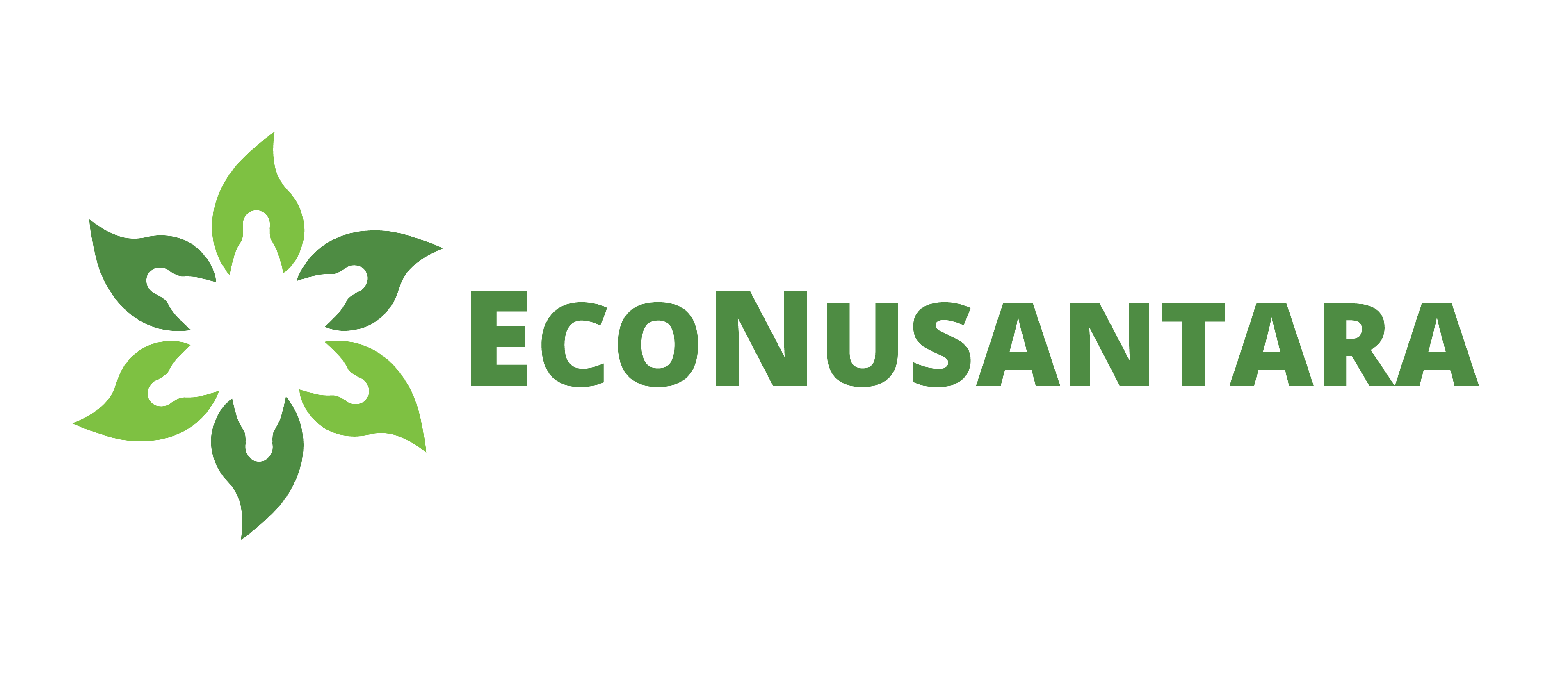The public certainly still remembers how terrible the 2015 and 2019 haze disasters were. Quoting kompas.id, victims of Acute Respiratory Infection (ARI) in 2015 reached 639,000 people, while in 2019 ARI victims were 323,000 people. The terrible impact of forest and land fires in Indonesia, especially in Riau Province, has made many parties improve, one of which is the Siak District Government. Siak is the only district in Riau that implements a green district policy.
The most progressive policy is the issuance of the Green Siak Regional Regulation (Siak Hijau). In this Siak Hijau regulation, the Siak District Government encourages saving forests, especially peatlands. Of course, both the community and corporations are involved.
Corporations that support the Siak Hiju policy are members of the Private Sector Coalition for Green Siak or KPSSH for short, which was formed in 2018. Bogor-based independent experts consulting firm EcoNusantara helped to form the KPSSH. Khairul Basyar, Daily Chairperson of KPSSH stated that this coalition was formed to respond to the Siak District Government’s commitment to save the environment. Moreover, corporations operating in Siak have already had various sustainable and environmental protection programs. For him, the Siak District Government’s initiative injected enthusiasm for the private sector to implement an environmentally friendly business model.
“Siak Hijau is pretty good. So this initiative supports national achievements, the national government has a commitment to reduce GHG (greenhouse gas) emissions. Siak Hijau is faster to do that,” he told TangkasiID at the end of February.
Khairul also explained that the corporations involved in KPSSH did not have any motive. According to him, the life sustainability program run by the corporation is in order to fulfill its obligations to the state. The presence of KPSSH is also a communication bridge between the company and the community, both NGOs and independent farmers. So that mutual distrust between stakeholders can be removed. One of the companies involved in this coalition is Wilmar.
Tangled threads of the supply chain
Citing databooks.katadata.co.id, the area of oil palm plantations in Indonesia reached 15.08 million hectares in 2021. A total of 8.42 million hectares (55.8%) were owned by private plantations. Smallholder plantations cover 6.08 million hectares (40.34%). The remaining 579.6 thousand hectares (3.84%) are owned by state plantations. Although the area of private plantations and smallholder plantations are almost equally large, their fate is certainly different.
Wilmar’s Sustainability Head, Pujuh Kurniawan told TangkasiID, the reason Wilmar was involved in the Green Siak initiative. He explained that the key to environmental sustainability from the oil palm plantation sector lies in the supply chain. The palm oil supply chain from the smallholder plantation sector involves many parties ranging from farmers, middlemen, ram (a place to buy and sell palm oil), to end up in palm oil mills. The length of this supply chain means that the origin of the palm oil received by Wilmar cannot be verified. Moreover, WIlmar does not have a large plantation area. So Wilmar receives supplies from partner plantations and independent smallholders.
The complexity of the supply chain encourages Wilmar to provide guidance to independent farmers and parties in the Wilmar palm oil supply chain. Moreover, Wilmar has implemented the NDPE (No Deforestation, No Peat, No Exploitation) concept as its corporate value. Pujuh said Wilmar wants all lines of the company to prioritize environmental sustainability.
“Our concern is how to increase productivity, improve quality, and how it is also related to sustainability,” he said in early March.
The presence of the Siak Hijau initiative, for Pujuh, further strengthens Wilmar’s commitment. Prior to the Siak Hijau policy, companies operating in Siak had run various programs to save the environment. With the Siak Hijau initiative, the local government can coordinate regarding the company’s support program for Siak Hijau. So that the company’s programs can benefit the entire Siak community.
This collaborative work, he said, was able to effectively target independent farmers, the target of Wilmar’s assistance so far. One of Wilmar’s foster groups is Tinera Jaya Cooperative, in Siak District.
Suryono, Chairman of Tinera Jaya Cooperative, recounted the beginning of his cooperative’s partnership with Wilmar. The initiative to encourage sustainable palm oil plantations was first introduced by a non-governmental organization in mid-2016. However, due to several obstacles experienced, the application for Roundtable on Sustainable Palm Oil (RSPO) certification was unsuccessful. It was only later in 2018 that PT Persi (Permodalan Siak) together with Wilmar helped Tinera Jaya Cooperative obtain Indonesia Sustainable Palm Oil (ISPO) certification.
Suryono explained that Wilmar has contributed a lot to Tinera Jaya Cooperative, which has 225 members with 611.4 hectares of managed land. In collaboration with Wilmar, they increase knowledge on environmentally friendly oil palm plantation management.
The ISPO certificate obtained by Tinera Jaya Cooperative has an impact on the welfare of independent smallholders. One of the impacts that he is proud of is that many independent smallholders are now able to continue their children’s education up to the university level because of the improvement in the economy of the farmers.
“Farmers (used to be) difficult, now their economy has improved and many children of these farmers have gone to college,” he proudly told TangkasiID.
Pujuh, from Wilmar, explained that there are still many farmers who do not understand the concept of sustainability. Another problem encountered is also related to conflicts over the legality of independent farmers’ land. Pujuh often encounters smallholder plantations that overlap with corporate land or are in forest areas. He cited the case experienced by KUD Panca Jaya in Rokan Hilir District, Riau Province..
The location of the independent farmers in Rokan Hilir is ex-transmigration land and has had a certificate since 1978. However, suddenly the community land was declared to be in the forest area. Wilmar then actively assisted the community to resolve their land problems.
According to him, the first education given to the community is attention to the problems they experience. This creates an attitude of mutual respect and understanding. This attitude encourages Wilmar’s independent smallholders to play an active role in supporting Wilmar’s environmental sustainability program.
“Well (from the mentoring process), so he can verify. I don’t accept (those that are not ISPO certified). I don’t want to sell to Wilmar, because that’s the line. And it will definitely not be able to get into Wilmar’s supply. Because the tools are already there. And it is really the (cooperative) management who can check directly,” said Pujuh.
For Pujuh, good management of smallholder plantations also has a good impact on Wilmar from a business perspective. So he hopes that more independent smallholders will apply the NDPE principle.
Environmental sustainability, just for business?
Pujuh does not deny that changes in the company’s attitude towards environmental issues are influenced by business. Moreover, Wilmar is a public company, so when there is a push to reform itself, then Wilmar will do it.
Furthermore, market conditions that urge companies to pay attention to environmental sustainability in the production process, also become the company’s consideration. According to him, even without pressure from environmental non-governmental organizations (NGOs), corporations will definitely care about nature conservation.
“Before being attacked by NGOs, if they (corporations) are attacked by their buyers, they will change first, because it is for business,” he said.
Wilmar is also a member of the Dow Jones Sustainability Index (DJSI), a guide for investors to invest in companies with environmental commitments. Pujuh emphasized that Wilmar has worked hard to maintain its position as a member of the DJSI.
The strength of the company’s business motives in the context of the environment, according to him, is only natural. For him, the most important thing now is to encourage sustainability practices to be carried out by all parties. Pujuh claimed that three years ago, Wilmar had been harsh to its business partners who did not apply the NDPE principle by refusing 1.5 million tons of palm oil supply.
But unfortunately, the palm oil supply that was rejected by Wilmar was accepted by other palm oil processing companies. According to Pujuh, Wilmar and NGOs can collaborate to ensure that Wilmar’s business partners apply the NDPE concept. So that smallholder plantations that have implemented the concept of sustainability, remain in a business ecosystem that maintains natural preservation.
“Even though we suspend (palm oil supply) 1.5 million tons, this goes to other (corporate) places. Companies that are not familiar (with the concept of environmentally friendly), who are not aware, and accept (the supply rejected by Wilmar),” Pujuh said with concern.
For Pujuh, rather than struggling with accusations of greenwashing, she hopes that environmental NGOs will collaborate with companies that have a commitment to sustainability. He emphasized that the collaboration program must ensure that it has an impact on society and the environment.
Pujuh hopes that environmental NGOs that have experience in community assistance are willing to collaborate. With the support of environmental NGOs in Riau, Pujuh believes that the production chain, which has been problematic and unmonitored, can be improved with the support of all parties. However, she emphasized that this effort cannot be short, it requires consistency of commitment.
“Wilmar’s project in providing access to the market is long term. So indeed if it is long term, it cannot be short term. The results cannot be seen now, but the partnership and synergy started from now. We may pick it up in 5 years,” he said.
Pujuh also assessed that the existence of KPSSH has enormous benefits, especially as a communication bridge between corporations and NGOs.
The commitment of corporations in saving the environment, of course, still needs to be tested. But providing opportunities to all parties, especially plantation and industrial plantation companies, is also worth trying. Pujuh Kurniawan understands very well that criticism is a good input for companies to continue to improve themselves.
But he hopes that communication can be established, without suspecting each other. For him, efforts to improve the environment are not only for corporate benefits. The main end of all these efforts is for the progress of Indonesia. (*)
Source: https://tangkasi.id/looking-at-corporate-support-for-siak-hijau-green-action-or-greenwashing/

